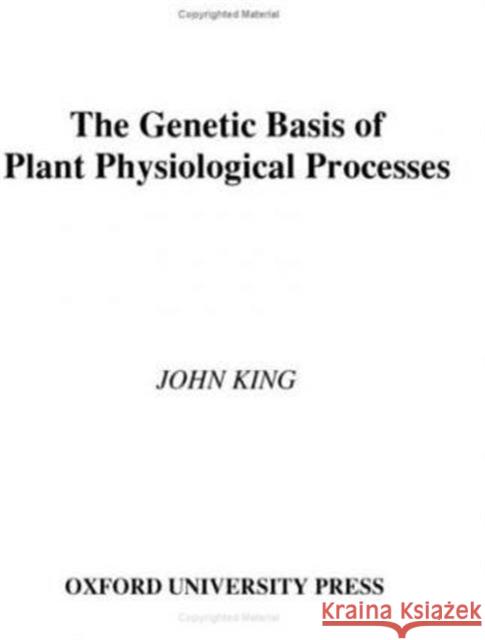The Genetic Basis of Plant Physiological Processes » książka
The Genetic Basis of Plant Physiological Processes
ISBN-13: 9780195048575 / Angielski / Twarda / 1991 / 432 str.
Plant molecular biology is rapidly becoming an important and successful component of the worldwide research challenge to apply basic biochemical, physiological and genetic techniques for the improvement of agricultural crops. This book shows how the study of fundamental plant physiological processes is being advanced through the science of genetics. The author has adopted a case study approach to illustrate how defined genetic materials in mutants and plant variants are being productively used to explore photosynthesis, stress tolerance, seed physiology, and flowering and reproductive morphology. This approach also helps avoid overwhelming readers who might be unfamiliar with the enormous detail now available in this burgeoning field. The case studies cover all major fields of plant physiology and are grouped in a format familiar to students of the discipline. Most take the form of a brief introduction followed by a discussion of the isolation and characterization of the mutants in question, and then by examples of how these mutants have been used to provide physiological insights. The aim is to make the information accessible to students with an elementary knowledge of plant physiology, genetics, and molecular biology, as well as other scientists and students who wish to know more about the application of the powerful tools provided by genetics.











